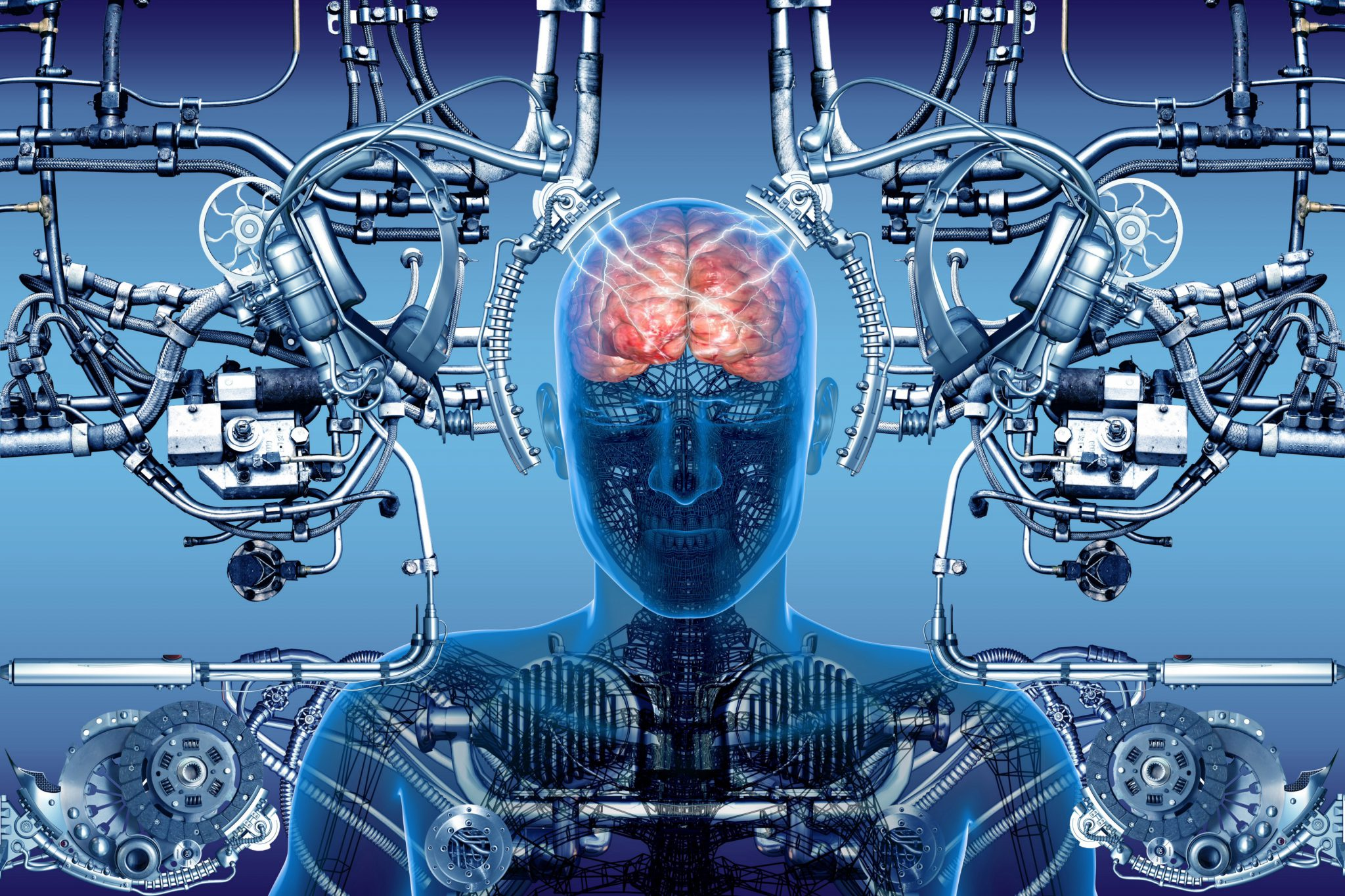Brain-computer interfaces (BCIs) represent a groundbreaking convergence of technology and neuroscience, rewriting the potential of human capability. With companies like Neuralink at the forefront, innovations like the Neuralink brain chip have emerged, allowing individuals to interact with machines through their minds, offering unprecedented benefits to those with disabilities. However, as this neurotechnology advances, it invites critical discussions about the implications surrounding neurotechnology risks and ethical considerations. While BCI technology benefits include improved quality of life and enhanced communication for people with mobility impairments, concerns also arise about its potential misuse, echoing a dark history of mind control efforts. As we forge ahead into this new era of cognitive interfaces, society must balance the promise of progress with vigilance against the perils of such powerful technologies.
The realm of cognitive enhancement and direct brain-machine integration is gaining momentum, often referred to as neuro-interface technology or thought translation systems. This cutting-edge field melds human cognition with technological systems, ushering in possibilities previously confined to science fiction. Brain implants and neuroprosthetics have opened pathways for therapeutic advancements, particularly in aiding those with movement disorders and neurological injuries. While the benefits of such innovative advancements are tremendous, they come with complex challenges surrounding ethics and personal autonomy, reminiscent of past transgressions in behavioral manipulation. As we navigate the implications of these technologies, a comprehensive dialogue about their societal impact becomes crucial.
The Rise of Brain-Computer Interfaces and Their Impact
Brain-computer interfaces (BCIs) have emerged as a groundbreaking neurotechnology that holds the potential to revolutionize the way we interact with devices and our environment. Recently, the successful implantation of a Neuralink brain chip in a paralyzed individual, allowing him to control a computer mouse and play games using just his thoughts, has garnered significant attention. This technological advancement could help millions of people with disabilities, transforming their lives by enabling them to regain independence and improve their quality of life.
However, as the market for BCIs is projected to surge to around $400 billion, it’s essential to explore not only the benefits but also the ethical implications and potential risks associated with such powerful technologies. As BCIs become more advanced, concerns arise around issues of mental privacy, consent, and the unintended consequences of manipulating brain function. These considerations highlight the importance of approaching BCI technology with caution and a strong ethical framework.
Neurotechnology Risks: The Dark Side of Innovation
While the benefits of BCIs are promising, the associated risks cannot be overlooked. History has shown that technological advancements, particularly those aimed at manipulating human behavior, can lead to dire consequences. Lukas Meier’s cautionary perspective highlights the unsettling parallels between current neurotechnology developments and the mind control experiments conducted during the Cold War. With the advent of advanced neurotechnologies, there is potential for misuse by both state and private entities, echoing the historical instances of psychological manipulation and severe ethical violations.
The echoes of past atrocities serve as a stark reminder of the responsibilities that come with new technologies. The potential for misuse of BCIs in eliciting information from subjects without their consent raises urgent ethical questions. Recent reports of devices monitoring students’ brainwaves to enhance focus underline the delicate balance between advancement and invasion of personal autonomy. Thus, as we forge ahead with neurotechnology, it is crucial to revisit the lessons from history and establish robust regulatory measures to protect against future abuses.
Historical Context: Mind Control Experiments and Their Lessons
The historical context surrounding mind control initiatives, particularly during the Cold War, sheds light on the ethical dilemmas we face today regarding brain technologies. The CIA’s MKUltra program, which sought to explore the limits of psychological manipulation, is a cautionary tale of how seemingly innocuous innovations can spiral into unethical experimentation. Meier references these dark experiments to illustrate the potential for contemporary neurotechnology to similarly infringe upon individuals’ autonomy and mental well-being.
The resonances of these past transgressions with today’s developments suggest that a reckoning is necessary. As we expand our understanding of the human brain and its capabilities through BCIs and other neurotechnologies, we must ensure that the mistakes of the past are not repeated. This includes establishing ethical guidelines and oversight mechanisms that prioritize mental privacy and informed consent, ensuring that technological progress occurs hand-in-hand with respect for human rights.
The Benefits of BCI Technology: Changing Lives for the Better
Despite the risks, the potential benefits of brain-computer interface (BCI) technology are remarkable. For individuals suffering from paralysis, neurological disorders, and other severe conditions, BCIs offer a new lease on life. With successful cases like that of Neuralink’s implant, which has allowed individuals to communicate through thought, the promise of BCIs is undeniable. The capacity to control prosthetics with one’s mind opens avenues for independence and rehabilitation that were once deemed impossible.
Moreover, the growth of BCI technology could spur advancements across various fields, from healthcare to education. These interfaces could enhance cognitive abilities, improve learning by creating engaging interfaces, and even assist in treating mental health issues by offering tailored, brain-targeted therapies. As we navigate this burgeoning landscape, the focus should remain on maximizing these benefits while vigilantly guarding against the ethical pitfalls that accompany such powerful technologies.
Regulatory Considerations: Ensuring Safe Deployment of Neurotechnology
As the field of brain-computer interfaces (BCIs) continues to evolve rapidly, establishing comprehensive regulatory frameworks becomes increasingly critical. Policymakers and technologists must work collaboratively to create guidelines that ensure safe and ethical deployment of these technologies. This includes development stages that incorporate ethical review processes to assess potential impacts on mental privacy and consent, safeguarding individuals from possible abuses of these powerful tools.
In addition to ensuring the ethical use of BCIs, regulatory frameworks should promote transparency and public discourse about the implications of neurotechnology. Engaging with communities and stakeholders will help to navigate the complexities that come with advanced neurotechnologies, fostering an informed public that is aware of both the opportunities and challenges they pose. A proactive approach to regulation will not only protect individuals but also bolster public trust in the capabilities and applications of brain-computer interfaces.
Ethics vs. Innovation: Balancing Progress and Precaution
Navigating the intersection of ethics and technological innovation presents a formidable challenge, particularly in the realm of neurotechnology. As we push the boundaries of brain-computer interfaces (BCIs), it is essential to strike a balance between embracing revolutionary advancements and ensuring adherence to ethical standards. The promise of BCIs in revolutionizing life for those with disabilities must be tempered with careful consideration of potential risks and repercussions associated with their use.
Establishing ethical principles that guide the development of BCIs is paramount to preventing scenarios reminiscent of past abuses in mind control experimentation. This includes prioritizing accountability, informed consent, and the protection of individual rights, particularly as neurotechnology continues to advance at an unprecedented pace. By embedding ethical considerations deeply into the fabric of neurotechnology innovation, we can pave the way for a future where progress does not come at the expense of humanity.
Global Perspectives: BCI Usage Across Borders
The deployment and application of brain-computer interfaces (BCIs) vary significantly across different geopolitical landscapes. Countries like the United States are pioneering innovations, but international perspectives on such technologies reveal diverse regulatory environments and ethical standards. For instance, while BCIs are being embraced enthusiastically in some regions, others express caution due to fears of potential misuse, especially regarding surveillance and privacy invasions.
Examining global variations in BCI technology usage highlights the need for international cooperation in establishing uniform ethical guidelines. Collaborative efforts can lead to consensus on acceptable practices and provide a framework for ensuring responsible innovation. This approach will not only enhance the safety and effectiveness of neurotechnologies but also promote a shared understanding of the implications they hold for humanity as a whole.
Public Perception: The Role of Media and Awareness
Public perception of brain-computer interfaces (BCIs) is shaped significantly by media representation and public discourse surrounding neurotechnology. Mixed narratives emerge as society grapples with the implications of this pioneering tech; some view it as a miraculous solution for debilitating conditions while others express skepticism about inherent risks and ethical considerations. The portrayal of BCIs in popular culture can amplify concerns related to mind control scenarios reminiscent of historical abuses.
To foster a more balanced understanding of BCI technology, efforts must be made to educate the public about its capabilities, benefits, and risks. Transparent discussions and accurate representations in media can serve to demystify BCIs, encouraging a more informed dialogue about how these technologies could be integrated into society responsibly. Engaging with the community, including ethical debates, will ensure that diverse perspectives are heard and considered in the unfolding narrative of neurotechnology.
Future Trends: Innovations on the Horizon in BCI Technology
As the field of brain-computer interfaces (BCIs) continues to evolve, researchers are exploring countless innovative applications that promise to define the future of this technology. From enabling enhanced communication for individuals with severe disabilities to offering real-time brain data analytics for neurological research, the potential trajectories for BCI technology are vast and exhilarating. This ongoing research promises not only to improve the lives of many but also to deepen our understanding of brain function and cognition.
However, as these innovations begin to materialize, vigilance surrounding ethical considerations must accompany their development. Close attention should be paid to any unforeseen behavioral modifications resulting from BCI interactions, as well as potential societal impacts. Ultimately, the future of BCI technology should prioritize beneficial outcomes while ensuring that ethical practices remain at the forefront of technological advancements.
Frequently Asked Questions
What are brain-computer interfaces (BCIs) and how do they work?
Brain-computer interfaces (BCIs) are neurotechnology systems that enable direct communication between the brain and external devices, such as computers or prosthetics. They work by interpreting brain signals and translating them into commands for devices, facilitating activities like controlling a computer cursor or operating robotic limbs.
What is the significance of Neuralink brain chip implants in BCI technology?
Neuralink brain chip implants represent a significant advancement in brain-computer interface technology. They aim to provide new therapeutic applications for individuals with disabilities, allowing them to control devices and interact with technology through their thoughts, thereby improving their quality of life.
What are the potential risks associated with neurotechnology in brain-computer interfaces?
The risks associated with neurotechnology in brain-computer interfaces include concerns about mental privacy, consent, and the possibility of misuse for mind control or unintended behavioral changes. Historical precedents, such as CIA experimentation during the Cold War, remind us of the ethical implications involved.
How might BCI technology benefit individuals with disabilities?
BCI technology has the potential to benefit individuals with disabilities by restoring lost functions. For example, it can help paralyzed patients control wheelchairs or prosthetic limbs, enabling them to perform tasks independently and improving their overall quality of life.
Could brain-computer interfaces lead to mind control?
While brain-computer interfaces (BCIs) primarily focus on assisting individuals with disabilities, there are concerns that they could inadvertently lead to forms of mind control. Advances in neurotechnology could potentially allow for manipulation of behavior or thoughts, raising ethical questions about autonomy and consent.
What are the implications of BDA technology on mental health and personal freedom?
The implications of brain-computer interfaces (BCIs) and bio-digital convergence (BDA technology) on mental health and personal freedom include the potential for invasion of mental privacy and the risk of altering individual behaviors without consent. Discussions surrounding these technologies emphasize the need for ethical guidelines to protect users.
Is there historical evidence of mind control attempts that relate to current BCI developments?
Yes, historical evidence exists, particularly during the Cold War, when various government agencies explored mind control techniques. Current developments in brain-computer interfaces evoke concerns about similar ethical issues, emphasizing the importance of responsible use of neurotechnology.
What future applications can we expect from BCI technology?
Future applications of brain-computer interface technology may include enhanced communication for individuals with speech impairments, advanced remote control of electronic devices through thought, and even potential therapeutic applications for mental health conditions, demonstrating the vast possibilities of this innovative technology.
| Key Point | Details |
|---|---|
| First Brain Chip Implant | Noland Arbaugh becomes the first recipient of a Neuralink brain chip implant. |
| Functionality | The brain chip allows Arbaugh to control a computer mouse and play online chess using his thoughts. |
| Market Potential | The BCI market could reach $400 billion in the U.S. due to various medical conditions. |
| Historical Warnings | A paper warns that BCIs may echo past abuses like CIA experiments on mind control. |
| Cold War Reference | The paper discusses MKUltra and its implications for self-determination and mental privacy. |
| Potential Risks | BCIs may allow for the modification of behaviors beyond voluntary control, as evidenced in patients with deep brain stimulation. |
| Advocacy for Development | Meier advocates for BCI innovation to prevent adversarial misuse by other nations. |
Summary
Brain-computer interfaces (BCIs) represent a groundbreaking fusion of neuroscience and technology, showcasing significant potential to revolutionize the way individuals with disabilities interact with the world. However, as we progress with this life-changing technology, it is vital to remain cognizant of historical misuses and ethical implications that could arise. The lessons from past mind control experiments underscore the necessity of careful and responsible development of BCI technology. Balancing innovation with vigilance is crucial as we aspire to harness the full promise of brain-computer interfaces without repeating the mistakes of history.





